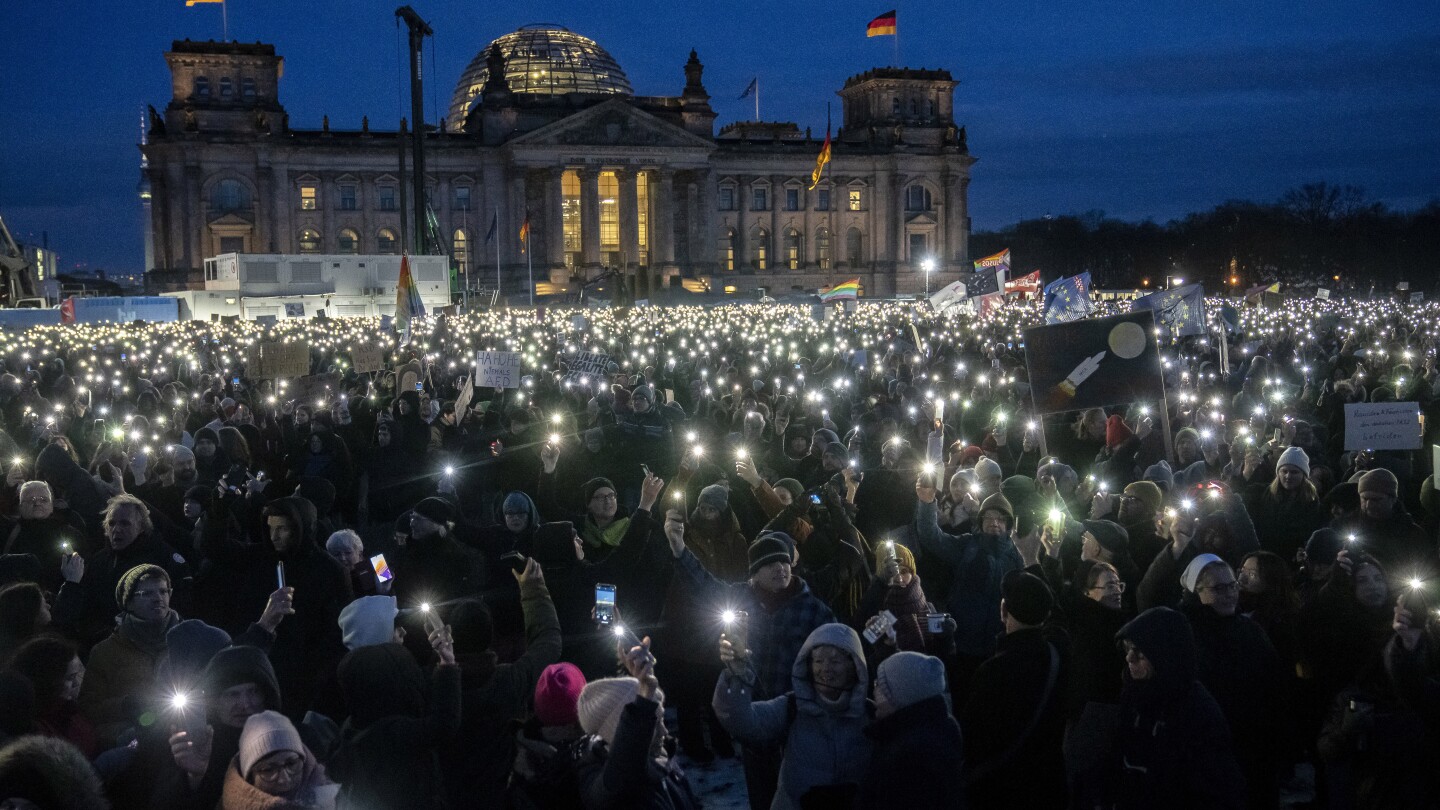BERLIN (AP) — Germany’s president called Monday for a broad “alliance against extremism” in the wake of a report about far-right discussions of deporting millions of immigrants that prompted protests by hundreds of thousands of people.
Germany has seen more than two weeks of protests against the Alternative for Germany party and others on the far right. The Interior Ministry said police figures suggest that some 576,000 people took part in demonstrations between Friday and Sunday.
President Frank-Walter Steinmeier met with employers and business associations, labor union leaders and others on to discuss social cohesion and the state of democracy in Germany.
He called the protests “a strong signal for our democracy” and said that “we now need a broad alliance across the population, across companies, culture and society — an alliance against extremism and for our democracy.”
The largely ceremonial head of state acknowledged, however, that “such an alliance alone can’t make the difference” and that “we need governments, an opposition, that do their work well.”
The pro-democracy demonstrations started after the investigative journalists’ group Correctiv published an article saying that right-wing extremists had recently met to discuss deporting millions of immigrants and people with immigrant roots, including some with German citizenship. Some Alternative for Germany members were present at the meeting.
The party, which has risen to second place in national polls behind the mainstream conservative opposition as center-left Chancellor Olaf Scholz’s coalition has become deeply unpopular, has sought to distance itself from the extremist meeting while also decrying the reporting.
It has said it had no organizational or financial links to the event, that it wasn’t responsible for what was discussed there and members who attended did so in a purely personal capacity.
Steinmeier said that more than a quarter of the work done in Germany is done by people whom right-wing extremists would like to throw out. He also said the country would also be “in a fix” if it can’t attract workers from abroad.
Germany’s main employer association and labor union federation issued a joint statement stressing that everyone living in Germany “must feel safe in our country.”
They said that Germany must remain attractive as a location “also to invite foreign skilled workers to find a home here.”

